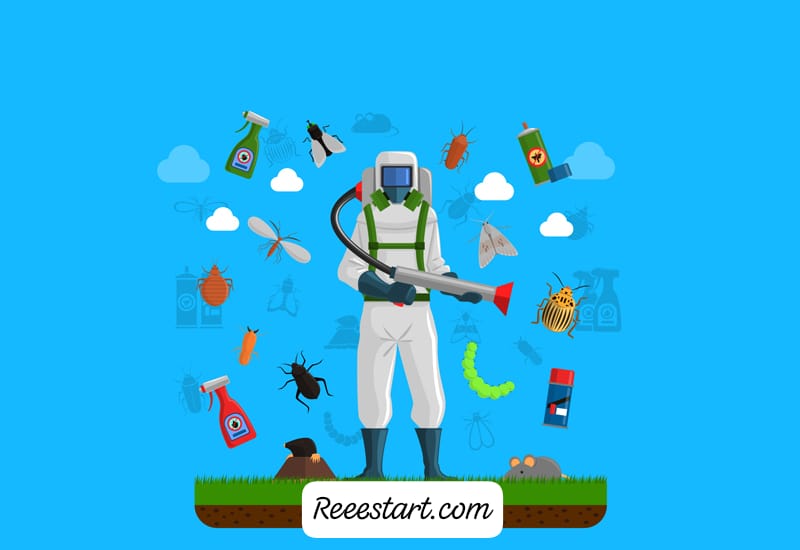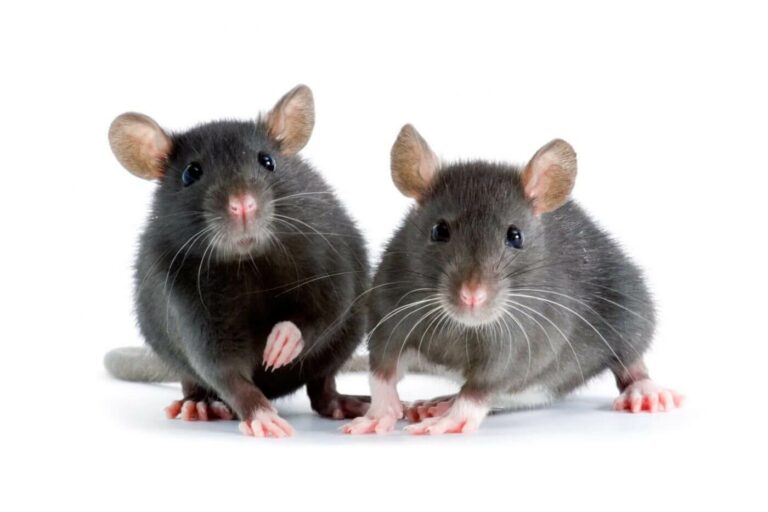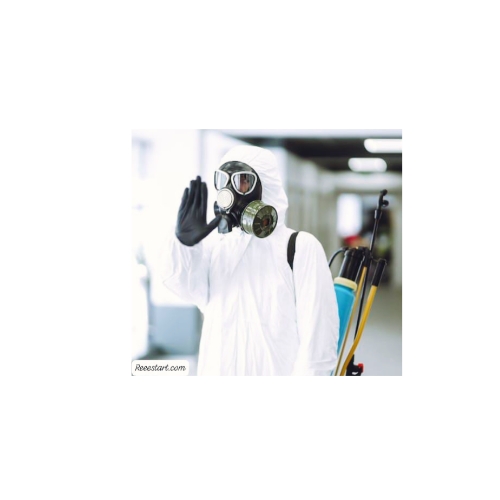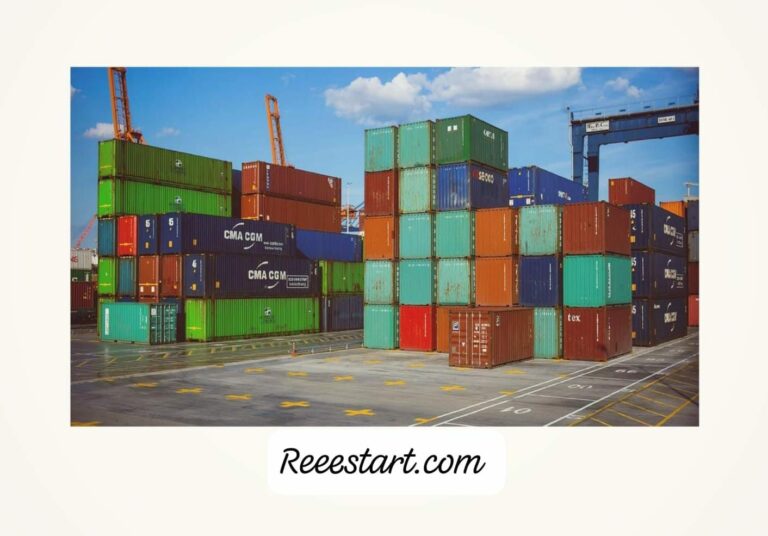Challenges and Rewards of Public Health Pest Control is an important matter to focus on, As Pest control, particularly in the realm of public health, is a critical yet demanding profession that often goes underappreciated. While many people may not immediately associate pest control with high-stress or complex work, those in the industry face an array of physical, emotional, psychological, and technical challenges. This profession is far more than simply eliminating pests from residential or commercial properties; it requires a deep understanding of biology, chemistry, safety protocols, customer relations, and often dealing with hazardous environment.
Challenges and Rewards of Public Health Pest Control
In this detailed analysis, we will explore the multifaceted nature of pest control, examining the difficulties professionals in this field face on a day-to-day basis, along with how they navigate these challenges. The following sections will provide insights into the physical demands, technical expertise, regulatory compliance, psychological impacts, and the broader industry ethics involved in pest control.
The Physical Demands of Pest Control
Pest control is an inherently physical job. The role is labor-intensive, requiring technicians to be on their feet for long hours, often in challenging conditions. Physical stamina, strength, and agility are key to handling the day-to-day tasks that arise in this profession.
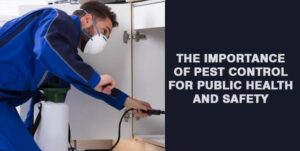
Manual Labor and Heavy Equipment
Technicians frequently need to transport and operate heavy equipment such as large sprayers, chemical containers, traps, and other pest control tools. In addition to the equipment, pest control work often involves performing tasks that demand both strength and dexterity, such as climbing ladders, crawling through tight crawlspaces, or working in confined and hazardous environments like attics or basements. Handling these situations requires not only physical endurance but also a high degree of flexibility and spatial awareness.
For example, when dealing with large infestations, pest control professionals may need to carry multiple heavy containers of chemicals or pesticides to different parts of a property, often over long distances or in difficult-to-reach areas. This increases the strain on the body, leading to the risk of physical exhaustion or injury.
Challenging Work Environments
Pest control professionals do not have the luxury of working in a single, predictable environment. The job demands that technicians work in diverse conditions, which can range from pristine, well-maintained homes and office buildings to deteriorating properties with mold, poor ventilation, or unsafe structures. Outdoor jobs add another layer of complexity, as technicians may be required to work in harsh weather conditions, including high temperatures, rain, or snow.
In some instances, technicians may need to address infestations in buildings or outdoor areas that are overrun with pests, making the task not only physically exhausting but potentially hazardous to their health. The varied nature of these environments means that every day brings new challenges, requiring technicians to be adaptable and resilient in their approach to their work.
Exposure to Hazardous Chemicals
A significant component of pest control is the use of pesticides and other chemical agents to treat infestations. While modern pest control products are safer than in the past, technicians still face the risk of exposure to harmful chemicals if proper protocols are not followed. Prolonged exposure to certain chemicals can result in respiratory problems, chemical burns, or other health issues.
Pest control workers must adhere to strict safety protocols when handling chemicals, including the use of protective gear such as gloves, masks, and goggles. Furthermore, technicians must be highly knowledgeable about how to safely apply these chemicals in various environments, ensuring that they are both effective and non-harmful to the client or the surrounding environment.
Technical and Knowledge Requirements
While pest control is often perceived as a straightforward service, it is in fact highly technical, requiring a blend of scientific knowledge, practical skills, and ongoing education to stay abreast of industry advancements.
Identification and Behavior of Pests
An essential part of The Challenges of Working in Public Health Pest Control profession is the ability to correctly identify the pest species causing an issue and understand its biology, behavior, and life cycle. This includes knowing where these pests typically reside, what attracts them, and how they reproduce. Without accurate identification and an understanding of the pest’s behavior, the technician could apply ineffective methods that not only fail to resolve the issue but could exacerbate it.
For example, rodents such as rats and mice require a completely different approach than insects like ants or bed bugs. Rodents may be managed through traps or exclusion techniques, while ants may require baiting or pesticide applications targeting their nests. Each pest has unique control methods, and technicians must tailor their solutions accordingly.
Chemicals and Treatment Application
One of the most technically demanding aspects of The Challenges of Working in Public Health Pest Control is the application of chemical treatments. Technicians need to have a strong understanding of the various chemicals they use, including the specific purposes they serve, how to apply them safely, and how to protect clients, pets, and the environment from potential harm.
Misapplication of pesticides can lead to several problems, including worsening the infestation, harming the environment, or even causing legal and financial ramifications for the pest control company. For instance, applying an insecticide in an area where pets or children might be exposed can result in poisoning, which can be disastrous for both the technician’s reputation and the company’s future.
Regulatory Compliance
Pest control is a highly regulated industry. Technicians must adhere to local, regional, and national regulations regarding pesticide use, waste disposal, and environmental protection. These laws are in place to protect public health and prevent long-term environmental damage, and failing to comply with them can lead to severe penalties, including fines, job loss, and even criminal charges.
Technicians need to stay current on changes to these regulations and ensure they are following all safety and legal guidelines. This requires constant education and sometimes passing certifications or licenses that demonstrate an understanding of the laws governing the industry.
Safety Protocols
Ensuring safety is a top priority for pest control professionals. This not only includes their own safety but also the safety of their clients, the general public, and the environment.
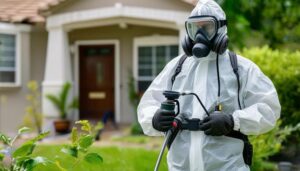
Protecting Technicians and Clients
The use of pesticides and chemicals necessitates the use of personal protective equipment (PPE), including gloves, goggles, face masks, and sometimes full-body suits. Technicians must always follow safety guidelines when applying chemicals, ensuring that they are used in appropriate quantities and in proper locations to avoid harm to themselves or others.
Additionally, it is crucial that technicians inform clients about the necessary precautions to take before, during, and after pest control treatments. This might include vacating the premises for a certain period, ensuring pets are kept away from treated areas, or using air filtration systems to ventilate treated areas.
Safety Guidelines and Protocols
Every pest control task involves handling hazardous chemicals, specialized equipment, and sometimes working in confined or unsafe spaces. Adherence to strict safety guidelines is essential to avoid accidents such as chemical spills, fires, or electrical hazards. For example, in cases where pest control involves structural fumigation, technicians must ensure that the building is vacated and properly sealed to avoid exposure to toxic gases.
One of the key safety protocols is ensuring that the correct pesticides are used for the right pest species, at the proper concentrations, and in the appropriate locations. A failure to follow these procedures can result in ineffective treatments or environmental damage, potentially exposing both technicians and clients to unnecessary risks.
Dealing with Distressed Clients
Pest control technicians often encounter clients who are in distress, and handling these emotionally charged situations requires strong interpersonal skills, patience, and professionalism.
Managing Client Expectations
Clients typically call pest control services when they are dealing with an infestation that is out of their control. Many times, these infestations are causing significant damage to property or posing a health risk. The emotional pressure on the technician to perform well and deliver results is high.
Technicians must be empathetic, reassuring, and professional, even when clients are frustrated or angry. While the client may not be aware of the complexities of pest control, the technician must calmly explain the situation, treatment options, and expected outcomes, all while maintaining a positive and confident demeanor.
Effective Communication
Good communication skills are essential in pest control, not only for explaining treatment plans but also for managing client expectations. Technicians must provide clear instructions on how to prevent future infestations, maintain treated areas, and ensure that the pest issue is thoroughly resolved. They must also address any concerns the client may have, such as the safety of the treatments and the potential impact on pets or children.
Emotional and Psychological Challenges
Beyond physical labor, pest control technicians also face emotional and psychological challenges. The repetitive nature of the work, combined with the often-stressful situations, can lead to mental fatigue.
Dealing with Fear and Discomfort
Working with pests such as rodents or cockroaches can be psychologically challenging, particularly if the technician has a natural aversion to these creatures. Even for professionals who are not afraid of pests, working in unpleasant environments—such as cramped, dark spaces—can contribute to mental fatigue and anxiety.
Burnout and Stress
The combination of physical labor, mental stress from managing clients, and the emotional toll of working with distressed individuals can lead to burnout. Over time, the constant exposure to high-stress situations and physically demanding work can wear down a technician’s mental and emotional health. To combat burnout, it is crucial that pest control companies implement regular training, provide emotional support for workers, and ensure that technicians have adequate time to rest and recover.
Driving and Reputation Risks
Since many pest control technicians drive company vehicles to clients’ locations, their driving habits can impact both their personal safety and the company’s reputation.
Safe Driving Practices
Technicians must practice safe driving at all times, especially when driving company-branded vehicles. A single traffic violation or accident could damage the company’s reputation and result in negative customer feedback. Furthermore, technicians may be required to navigate unfamiliar or challenging areas, including rural locations or busy urban streets.
Impact on the Company’s Image
The company’s reputation is often tied directly to the behavior of its technicians, both on the job and on the road. Since technicians often represent the company to clients, their professionalism in both driving and interacting with customers can have a direct impact on client satisfaction and the company’s long-term success.
The Rewards and Why People Stay in Pest Control
Despite the many challenges, many technicians find pest control to be a rewarding career. Here are some reasons why individuals continue to work in this field.
Job Satisfaction and Sense of Accomplishment
Pest control is an essential service that directly impacts the health and safety of the community. For many technicians, solving complex problems and providing peace of mind to clients is a source of job satisfaction. There is a strong sense of accomplishment in helping people regain control of their homes or businesses by eradicating potentially harmful pests.
Career Growth Opportunities
Pest control offers ample opportunities for career growth. Technicians can advance into management or sales positions, or specialize in areas such as organic pest control, wildlife management, or fumigation.
Ongoing Learning and Development
The pest control industry is constantly evolving. New technologies, innovative techniques, and updated regulations provide continuous learning opportunities for technicians. This keeps the work dynamic and intellectually stimulating, making it an appealing option for individuals who enjoy learning and adapting to new challenges.
Pest control may seem like an overlooked profession, but the challenges it presents are vast and multifaceted. Technicians must possess a combination of physical stamina, technical expertise, strong communication skills, and emotional resilience to navigate the complexities of the job. Despite the numerous challenges, from working with hazardous chemicals to managing distressed clients, the rewards of helping people, ensuring public health, and advancing in a dynamic career make pest control a vital and fulfilling profession. For those who are up for the challenges, pest control is a career that offers both personal satisfaction and the opportunity to make a significant difference in the community.

